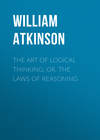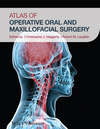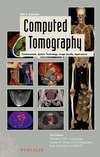Kitabı oku: «The Art of Logical Thinking; Or, The Laws of Reasoning», sayfa 6
CHAPTER XV.
DEDUCTIVE REASONING
We have seen that there are two great classes of reasoning, known respectively, as (1) Inductive Reasoning, or the discovery of general truth from particular truths; and (2) Deductive Reasoning, or the discovery of particular truths from general truths.
As we have said, Deductive Reasoning is the process of discovering particular truths from a general truth. Thus from the general truth embodied in the proposition "All horses are animals," when it is considered in connection with the secondary proposition that "Dobbin is a horse," we are able to deduce the particular truth that: "Dobbin is an animal." Or, in the following case we deduce a particular truth from a general truth, as follows: "All mushrooms are good to eat; this fungus is a mushroom; therefore, this fungus is good to eat." A deductive argument is expressed in a deductive syllogism.
Jevons says regarding the last stated illustration: "Here are three sentences which state three different facts; but when we know the two first facts, we learn or gather the third fact from the other two. When we thus learn one fact from other facts, we infer or reason, and we do this in the mind. Reasoning thus enables us to ascertain the nature of a thing without actual trial. If we always needed to taste a thing before we could know whether it was good to eat or not, cases of poisoning would be alarmingly frequent. But the appearance and peculiarities of a mushroom may be safely learned by the eye or the nose, and reasoning upon this information and the fact already well known, that mushrooms are good to eat, we arrive without any danger or trouble at the conclusion that the particular fungus before us is good to eat. To reason, then, is to get some knowledge from other knowledge."
The student will recognize that Deductive Reasoning is essentially an analytic process, because it operates in the direction of analyzing a universal or general truth into its particulars – into the particular parts which are included within it – and asserting of them that "what is true of the general is true of the particular." Thus in the general truth that "All men are mortal," we see included the particular truth that "John Smith is mortal" – John Smith having been discovered to be a man. We deduce the particular truth about John Smith from the general truth about "all men." We analyze "all men" and find John Smith to be one of its particular parts. Therefore, "Deduction is an inference from the whole to its parts; that is, an analytic process."
The student will also recognize that Deductive Reasoning is essentially a descending process, because it operates in the direction of a descent from the universal to the particular; from the higher to the lower; from the broader to the narrower. As Brooks says: "Deduction descends from higher truths to lower truths, from laws to facts, from causes to phenomena, etc. Given the law, we can by deduction descend to the facts that fall under the law, even if we have never before seen the facts; and so from the cause we may pass down to observed and even unknown phenomena."
The general truths which are used as the basis of Deductive Reasoning are discovered in several ways. The majority arise from Inductive Reasoning, based upon experience, observation and experiment. For instance in the examples given above, we could not truthfully assert our belief that: "All horses are animals" unless we had previously studied both the horse and animals in general. Nor without this study could we state that "Dobbin is a horse." Nor could we, without previous study, experience and experiment truthfully assert that: "All mushrooms are good to eat;" or that "this fungus is a mushroom;" and that "therefore, this fungus is good to eat." Even as it is, we must be sure that the fungus really is a mushroom, else we run a risk of poisoning ourselves. General truths of this kind are not intuitive, by any means, but are based upon our own experience or the experience of others.
There is a class of general truths which are called intuitive by some authorities. Halleck says of these: "Some psychologists claim that we have knowledge obtained neither through induction nor deduction; that we recognize certain truths the moment we perceive certain objects, without any process of inference. Under the head of intuitive knowledge are classified such cases as the following: We perceive an object and immediately know that it is a time relation, as existing now and then. We are said to have an intuitive concept of time. When we are told that the whole is greater than a part; that things equal to the same thing are equal to each other; that a straight line cannot enclose space, we immediately, or intuitively, recognize the truth of these statements. Attempts at proof do not make us feel surer of their truth… We say that it is self-evident, or that we know the fact intuitively. The axioms of mathematics and logic are said to be intuitive."
Another class of authorities, however, deny the nature of intuitive knowledge of truth, or intuitive truths. They claim that all our ideas arise from sensation and reflection, and that what we call "intuition" is merely the result of sensation and reflection reproduced by memory or heredity. They hold that the intuitions of animals and men are simply the representation of experiences of the race, or individual, arising from the impressions stored away in the subconsciousness of the individual. Halleck states regarding this: "This school likens intuition to instinct. It grants that the young duck knows water instinctively, plunges into it, and swims without learning. These psychologists believe that there was a time when this was not the case with the progenitors of the duck. They had to gain this knowledge slowly through experience. Those that learned the proper aquatic lesson survived and transmitted this knowledge through a modified structure, to their progeny. Those that failed in the lesson perished in the struggle for existence… This school claims that the intuition of cause and effect arose in the same way. Generations of human beings have seen the cause invariably joined to the effect; hence, through inseparable association came the recognition of their necessary sequence. The tendency to regard all phenomena in these relations was with steadily increasing force transmitted by the laws of heredity to posterity, until the recognition of the relationship has become an intuition."
Another class of general truths is merely hypothetical. Hypothetical means "Founded on or including a hypothesis or supposition; assumed or taken for granted, though not proved, for the purpose of deducing proofs of a point in question." The hypotheses and theories of physical science are used as general truths for deductive reasoning. Hypothetical general truths are in the nature of premises assumed in order to proceed with the process of Deductive Reasoning, and without which such reasoning would be impossible. They are, however, as a rule not mere assumptions, but are rather in the nature of assumptions rendered plausible by experience, experiment and Inductive Reasoning. The Law of Gravitation may be considered hypothetical, and yet it is the result of Inductive Reasoning based upon a vast multitude of facts and phenomena.
The Primary Basis of Deductive Reasoning may be said to rest upon the logical axiom, which has come down to us from the ancients, and which is stated as follows: "Whatever is true of the whole is true of its parts." Or, as later authorities have expressed it: "Whatever is true of the general is true of the particular." This axiom is the basis upon which we build our Deductive Reasoning. It furnishes us with the validity of the deductive inference or argument. If we are challenged for proof of the statement that "This fungus is good to eat," we are able to answer that we are justified in making the statement by the self-evident proposition, or axiom, that "Whatever is true of the general is true of the particular." If the general "mushroom" is good to eat, then the particular, "this fungus" being a mushroom, must also be good to eat. All horses (general) being animals, then according to the axiom, Dobbin (particular horse) must also be an animal.
This axiom has been stated in various terms other than those stated above. For instance: "Whatever may be affirmed or denied of the whole, may be denied or affirmed of the parts;" which form is evidently derived from that used by Hamilton who said: "What belongs, or does not belong, to the containing whole, belongs or does not belong, to each of the contained parts." Aristotle formulated his celebrated Dictum as follows: "Whatever can be predicated affirmatively or negatively of any class or term distributed, can be predicated in like manner of all and singular the classes or individuals contained under it."
There is another form of Deductive Reasoning, that is a form based upon another axiom than that of: "Whatever is true of the whole is true of the parts." This form of reasoning is sometimes called Mathematical Reasoning, because it is the form of reasoning employed in mathematics. Its axiom is stated as follows: "Things which are equal to the same thing, are equal to one another." It will be seen that this is the principle employed in mathematics. Thus: "x equals y; and y equals 5; therefore, x equals 5." Or stated in logical terms: "A equals B; B equals C; therefore, A equals C." Thus it is seen that this form of reasoning, as well as the ordinary form of Deductive Reasoning, is strictly mediate, that is, made through the medium of a third thing, or "two things being compared through their relation to a third."
Brooks states: "The real reason for the certainty of mathematical reasoning may be stated as follows: First, its ideas are definite, necessary, and exact conceptions of quantity. Second, its definitions, as the description of these ideas are necessary, exact, and indisputable truths. Third, the axioms from which we derive conclusions by comparison are all self-evident and necessary truths. Comparing these exact ideas by the necessary laws of inference, the result must be absolutely true. Or, stated in another way, using these definitions and axioms as the premises of a syllogism, the conclusion follows inevitably. There is no place or opportunity for error to creep in to mar or vitiate our derived truths."
In conclusion, we wish to call your attention to a passage from Jevons which is worthy of consideration and recollection. Jevons says: "There is a simple rule which will enable us to test the truth of a great many arguments, even of many which do not come under any of the rules commonly given in books on logic. This rule is that whatever is true of one term is true of any term which is stated to be the same in meaning as that term. In other words, we may always substitute one term for another if we know that they refer to exactly the same thing. There is no doubt that a horse is some animal, and therefore the head of a horse is the head of some animal. This argument cannot be brought under the rules of the syllogism, because it contains four distinct logical terms in two propositions; namely, horse, some animal; head of horse, head of some animal. But it easily comes under the rule which I have given, because we have simply to put 'some animal' instead of 'a horse'. A great many arguments may be explained in this way. Gold is a metal; therefore a piece of gold is a piece of metal. A negro is a fellow creature; therefore, he who strikes a negro, strikes a fellow creature."
The same eminent authority says: "When we examine carefully enough the way in which we reason, it will be found in every case to consist in putting one thing or term in place of another, to which we know it to have an exact resemblance in some respect. We use the likeness as a kind of bridge, which leads us from a knowledge of one thing to a knowledge of another; thus the true principle of reasoning may be called the substitution of similars, or the passing from like to like. We infer the character of one thing from the character of something which acts as a go-between, or third term. When we are certain there is an exact likeness, our inference is certain; when we only believe that there probably is, or guess that there is, then our inferences are only probable, not certain."
CHAPTER XVI.
THE SYLLOGISM
The third and highest phase or step in reasoning – the step which follows after those styled Conception and Judgment – is generally known by the general term "Reasoning," which term, however, is used to include the two precedent steps as well as the final step itself. This step or process consists of the comparing of two objects, persons or things, through their relation to a third object, person or thing. As, for instance, we reason (a) that all mammals are animals; (b) that a horse is a mammal; and (c) that, therefore, a horse is an animal. The most fundamental principle of this step or reasoning consists in the comparing of two objects of thought through and by means of their relation to a third object. The natural form of expression of this process of reasoning is called a "Syllogism."
The process of reasoning which gives rise to the expression of the argument in the form of a Syllogism must be understood if one wishes to form a clear conception of the Syllogism. The process itself is very simple when plainly stated, although the beginner is sometimes puzzled by the complicated definitions and statements of the authorities. Let us suppose that we have three objects, A, B and C, respectively. We wish to compare C and B, but fail to establish a relation between them at first. We however are able to establish a relation between A and B; and between C and A. We thus have the two propositions (1) "A equals B; and (2) C equals A". The next step is that of inferring that "if A equals B, and C equals A, then it must follow, logically, that C equals B." This process is that of indirect or mediate comparison, rather than immediate. C and B are not compared directly or immediately, but indirectly and through the medium of A. A is thus said to mediate between B and C.
This process of reasoning embraces three ideas or objects of thought, in their expression of propositions. It comprises the fundamental or elemental form of reasoning. As Brooks says: "The simplest movement of the reasoning process is the comparing of two objects through their relation to a third." The result of this process is an argument expressed in what is called a Syllogism. Whately says that: "A Syllogism is an argument expressed in strict logical form so that its conclusiveness is manifest from the structure of the expression alone, without any regard to the meaning of the terms." Brooks says: "All reasoning can be and naturally is expressed in the form of the syllogism. It applies to both inductive and deductive reasoning, and is the form in which these processes are presented. Its importance as an instrument of thought requires that it receive special notice."
In order that the nature and use of the Syllogism may be clearly understood, we can do no better than to at once present for your consideration the well-known "Rules of the Syllogism," an understanding of which carries with it a perfect comprehension of the Syllogism itself.
The Rules of the Syllogism state that in order for a Syllogism to be a perfect Syllogism, it is necessary:
I. That there should be three, and no more than three, Propositions. These three propositions are: (1) the Conclusion, or thing to be proved; and (2 and 3) the Premises, or the means of proving the Conclusion, and which are called the Major Premise and Minor Premise, respectively. We may understand this more clearly if we will examine the following example:
Major Premise: "Man is mortal;" (or "A is B").
Minor Premise: "Socrates is a man;" (or "C is A"). Therefore:
Conclusion: "Socrates is mortal" (or "C is B").
It will be seen that the above Syllogism, whether expressed in words or symbols, is logically valid, because the conclusion must logically follow the premises. And, in this case, the premises being true, it must follow that the conclusion is true. Whately says: "A Syllogism is said to be valid when the conclusion logically follows from the premises; if the conclusion does not so follow, the Syllogism is invalid and constitutes a Fallacy, if the error deceives the reasoner himself; but if it is advanced with the idea of deceiving others it constitutes a Sophism."
The reason for Rule I is that only three propositions – a Major Premise, a Minor Premise, and a Conclusion – are needed to form a Syllogism. If we have more than three propositions, then we must have more than two premises from which to draw one conclusion. The presence of more than two premises would result in the formation of two or more Syllogisms, or else in the failure to form a Syllogism.
II. That there should be three and no more than three Terms. These Terms are (1) The Predicate of the Conclusion; (2) the Subject of the Conclusion; and (3) the Middle Term which must occur in both premises, being the connecting link in bringing the two other Terms together in the Conclusion.
The Predicate of the Conclusion is called the Major Term, because it is the greatest in extension compared with its fellow terms. The Subject of the Conclusion is called the Minor Term because it is the smallest in extension compared with its fellow terms. The Major and Minor Terms are called the Extremes. The Middle Term operates between the two Extremes.
The Major Term and the Middle Term must appear in the Major Premise.
The Minor Term and the Middle Term must appear in the Minor Premise.
The Minor Term and the Major Term must appear in the Conclusion.
Thus we see that The Major Term must be the Predicate of the Conclusion; the Minor Term the Subject of the Conclusion; the Middle Term may be the Subject or Predicate of either of the premises, but must always be found once in both premises.
The following example will show this arrangement more clearly:
In the Syllogism: "Man is mortal; Socrates is a man; therefore Socrates is mortal," we have the following arrangement: "Mortal," the Major Term; "Socrates," the Minor Term; and "Man," the Middle Term; as follows:
Major Premise: "Man" (middle term) is mortal (major term).
Minor Premise: "Socrates" (minor term) is a man (major term).
Conclusion: "Socrates" (minor term) is mortal (major term).
The reason for the rule that there shall be "only three" terms is that reasoning consists in comparing two terms with each other through the medium of a third term. There must be three terms; if there are more than three terms, we form two syllogisms instead of one.
III. That one premise, at least, must be affirmative. This, because "from two negative propositions nothing can be inferred." A negative proposition asserts that two things differ, and if we have two propositions so asserting difference, we can infer nothing from them. If our Syllogism stated that: (1) "Man is not mortal;" and (2) that "Socrates is not a man;" we could form no Conclusion, either that Socrates was or was not mortal. There would be no logical connection between the two premises, and therefore no Conclusion could be deduced therefrom. Therefore, at least one premise must be affirmative.
IV. If one premise is negative, the conclusion must be negative. This because "if one term agrees and another disagrees with a third term, they must disagree with each other." Thus if our Syllogism stated that: (1) "Man is not mortal;" and (2) that: "Socrates is a man;" we must announce the Negative Conclusion that: (3) "Socrates is not mortal."
V. That the Middle Term must be distributed; (that is, taken universally) in at least one premise. This "because, otherwise, the Major Term may be compared with one part of the Middle Term, and the Minor Term with another part of the latter; and there will be actually no common Middle Term, and consequently no common ground for an inference." The violation of this rule causes what is commonly known as "The Undistributed Middle," a celebrated Fallacy condemned by the logicians. In the Syllogism mentioned as an example in this chapter, the proposition "Man is mortal," really means "All men," that is, Man in his universal sense. Literally the proposition is "All men are mortal," from which it is seen that Socrates being "a man" (or some of all men) must partake of the quality of the universal Man. If the Syllogism, instead, read: "Some men are mortal," it would not follow that Socrates must be mortal – he might or might not be so. Another form of this fallacy is shown in the statement that (1) White is a color; (2) Black is a color; hence (3) Black must be White. The two premises really mean "White is some color; Black is some color;" and not that either is "all colors." Another example is: "Men are bipeds; birds are bipeds; hence, men are birds." In this example "bipeds" is not distributed as "all bipeds" but is simply not-distributed as "some bipeds." These syllogisms, therefore, not being according to rule, must fail. They are not true syllogisms, and constitute fallacies.
To be "distributed," the Middle Term must be the Subject of a Universal Proposition, or the Predicate of a Negative Proposition; to be "undistributed" it must be the Subject of a Particular Proposition, or the Predicate of an Affirmative Proposition. (See chapter on Propositions.)
VI. That an extreme, if undistributed in a Premise, may not be distributed in the Conclusion. This because it would be illogical and unreasonable to assert more in the conclusion than we find in the premises. It would be most illogical to argue that: (1) "All horses are animals; (2) no man is a horse; therefore (3) no man is an animal." The conclusion would be invalid, because the term animal is distributed in the conclusion, (being the predicate of a negative proposition) while it is not distributed in the premise (being the predicate of an affirmative proposition).
As we have said before, any Syllogism which violates any of the above six syllogisms is invalid and a fallacy.
There are two additional rules which may be called derivative. Any syllogism which violates either of these two derivative rules, also violates one or more of the first six rules as given above in detail.
The Two Derivative Rules of the Syllogism are as follows:
VII. That one Premise at least must be Universal. This because "from two particular premises no conclusion can be drawn."
VIII. That if one premise is Particular, the Conclusion must be particular also. This because only a universal conclusion can be drawn from two universal premises.
The principles involved in these two Derivative Rules may be tested by stating Syllogisms violating them. They contain the essence of the other rules, and every syllogism which breaks them will be found to also break one or more of the other rules given.



















